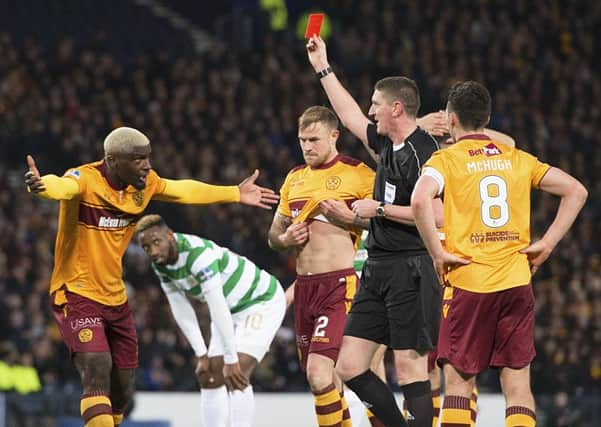Why referees are rarely '˜demoted' or '˜backed' after high-profile error


Instead of recognising that referees the world over make big mistakes in big games, and that the nature of football itself, especially without the assistance of video assistant referees (VAR), lends itself to furious debate around penalties, red cards etc, it’s instead fashionable to act like our officials are the worst on the planet. When, in actual fact, the number of Scottish whistlers on the Uefa and Fifa lists for European and international matches means that they’re a damned sight better at their job than our players are at theirs.
What’s also become increasingly unavoidable is the reaction after the post-match reaction, where observers go on ref watch to find out where the official is going next. If he’s following up a contentious Old Firm clash with a Ladbrokes Championship encounter, he’s being “demoted” or “punished”. If he’s handed a top flight clash, especially one involving a team he’s just inadvertently treated unfairly, then he’s “backed” by the powers that be. The announcement and the Scottish FA’s supposed response to the most recent display then becomes a story in itself.
Advertisement
Hide AdAdvertisement
Hide AdIn actual fact, this is rarely the case. Referees are not told about which game they’ll be in charge of until the Tuesday, which is typically the same day the rest of us find out. However, the ballot is usually drafted well in advance, sometimes up to six weeks before, The Scotsman understands.
The later announcement gives the governing body the chance to withdraw their man from the firing line if they feel it necessary, especially if it follows a particularly volatile encounter sparked by one or more of his decisions. But for the most part, the reason a referee takes charge of a lower league encounter after a top flight derby, or Hampden showpiece, is that’s what was originally scheduled.
It makes sense that the week after a high pressure match, with 50,000 people calling the referee a ****, ******* or ******* cheating ******, then it’s a nice change of scenery for the man in black; go down a tier and control a game watched by 2,000 fans. They tend to hurl the same abuse but it’s not quite as intimidating or nerve-wracking.
There are around ten referees who are regularly seen at top flight grounds. Those are John Beaton, Kevin Clancy, Willie Collum, Andrew Dallas, Stephen Finnie, Bobby Madden, Steven McLean, Don Robertson, Craig Thomson and Nick Walsh. While Greg Aitken, Euan Anderson, Barry Cook and Alan Muir have all refereed in the top flight this year. With officials working most weekends, and only six top flight games to be played, that’s a lot of shuffling to be done, especially as the fourth officials can often be drafted up from the lower leagues (three from this coming weekend haven’t refereed in the top flight this term).
It might be the case that the next time a whistler is “punished” he is being disciplined for poor performance. But it’s far more likely he’s just been handed the match he was due to officiate all along.